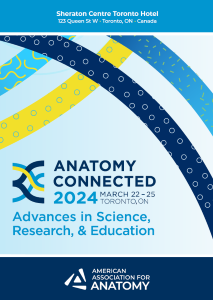Developmental Biology Posters
Poster: Developmental Biology Posters
14 - Safe harbor landing sites for reproducible transgenesis and variant testing in zebrafish
Monday, March 25, 2024
10:15am - 12:15pm US EDT
Location: Sheraton Hall
Poster Board Number: 14
There are separate poster presentation times for odd and even posters.
Odd poster #s – first hour
Even poster #s – second hour
Co-authors:
There are separate poster presentation times for odd and even posters.
Odd poster #s – first hour
Even poster #s – second hour
Co-authors:
Alexa Burger - University of Colorado, Anschutz Medical Campus; Cassie Kemmler - University of Colorado, Anschutz Medical Campus; Raymundo Lerma - University of Colorado, Anschutz Medical Campus; Christian Mosimann - University of Colorado, Anschutz Medical Campus; Susan Nieuwenwhuize - University of Colorado, Anschutz Medical Campus; Harrison Wells - University of Colorado, Anschutz Medical Campus

Robert Lalonde
Postdoc
University of Colorado, Anschutz Medical Campus
Denver, Colorado, United States
Presenting Author(s)
Abstract Body :Growing genomic resources including public ChIP-seq repositories and patient sequencing have motivated numerous enhancer mapping projects and disease-associated variant discoveries; however, functional testing and mechanistic work-up of individual gene-regulatory elements in vivo remains a major challenge. Standard methods for transgenesis in zebrafish, including enhancer reporter assays, depend on random transgene integration into the genome followed by resource-intensive screening and validation. Further, transgene position effects prevent reproducible enhancer testing, and quantitative comparisons between distinct enhancer variants. Targeted vector integration into validated genomic loci using phiC31 integrase-based attP/attB recombination has transformed mouse and Drosophila transgenesis. Here, using CRISPR-Cas9-mediated knockin, we converted two well-validated Tol2-based zebrafish transgenes (ubi:Switch, hsp70l:Switch) to attP landing site alleles referred to as phiC31-Integrase Genomic Loci Engineered for Transgenesis (pIGLET). Generating fluorescent reporters, loxP-based switches, and CreERT2 effector transgenes in the landing sites pIGLET14a and pIGLET24b, we document their suitability for key transgenesis applications with typical germline transmission rates between 25-50%.By combining traditional reporter assays with our novel landing site alleles, we are testing previously published and novel disease-associated non-coding variants associated with human congenital disease. Taken together, our new phiC31-based transgene landing sites establish reproducible, targeted transgenesis for numerous applications including testing of patient-derived coding and non-coding variants. This work is supported by CU School of Medicine, Department of Pediatrics and Section of Developmental Biology and by the Children’s Hospital Colorado Foundation.

